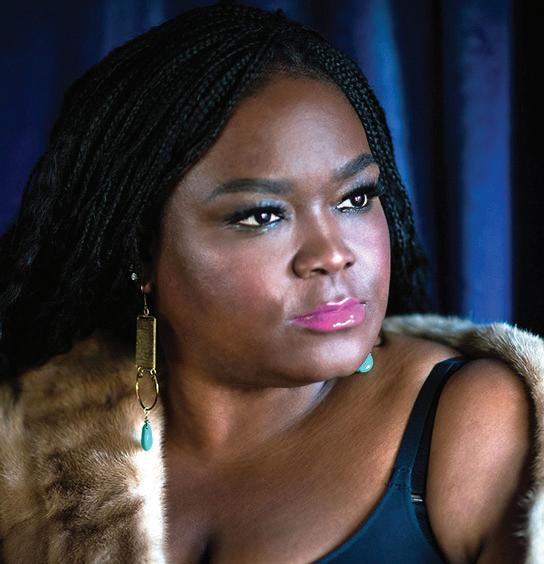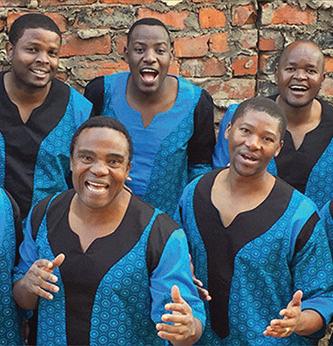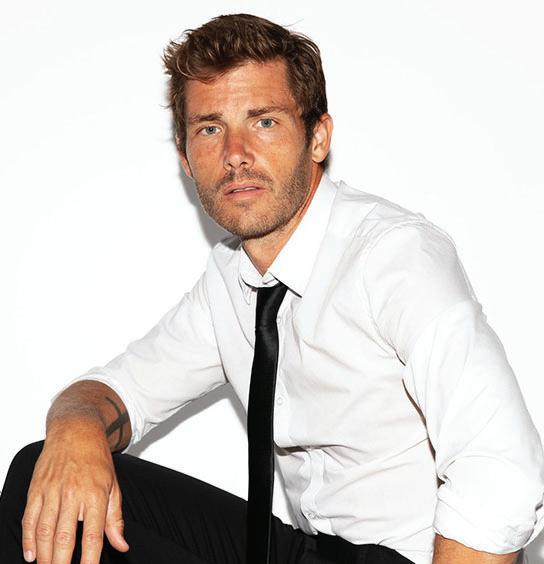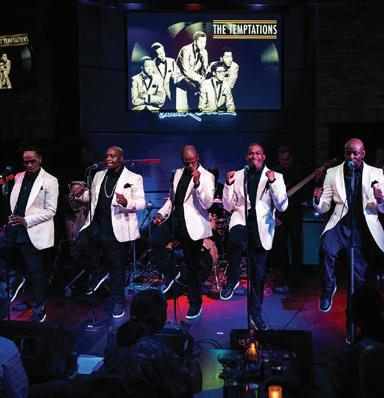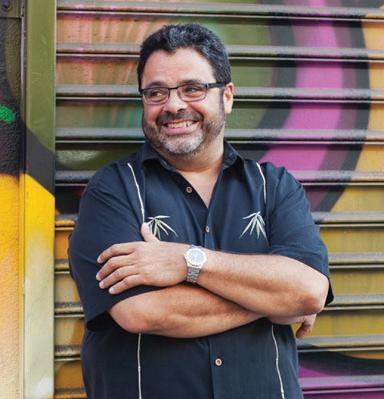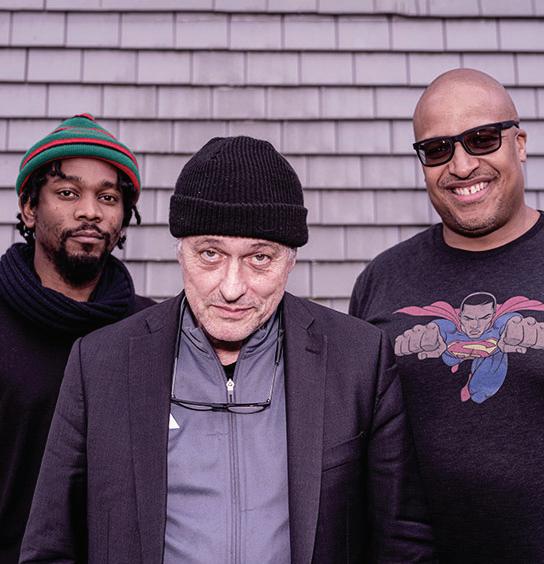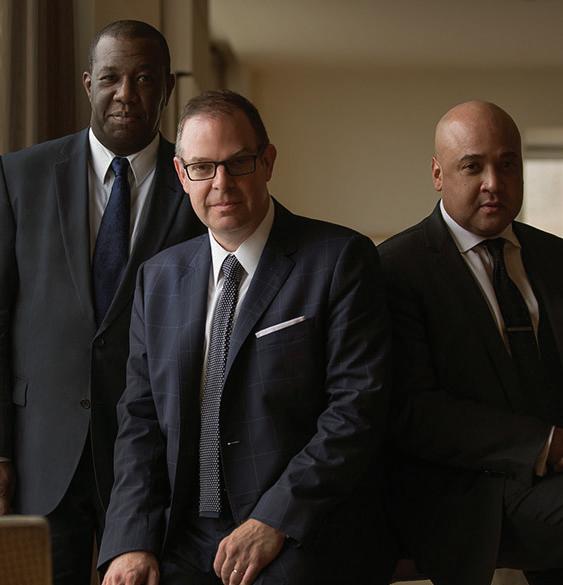
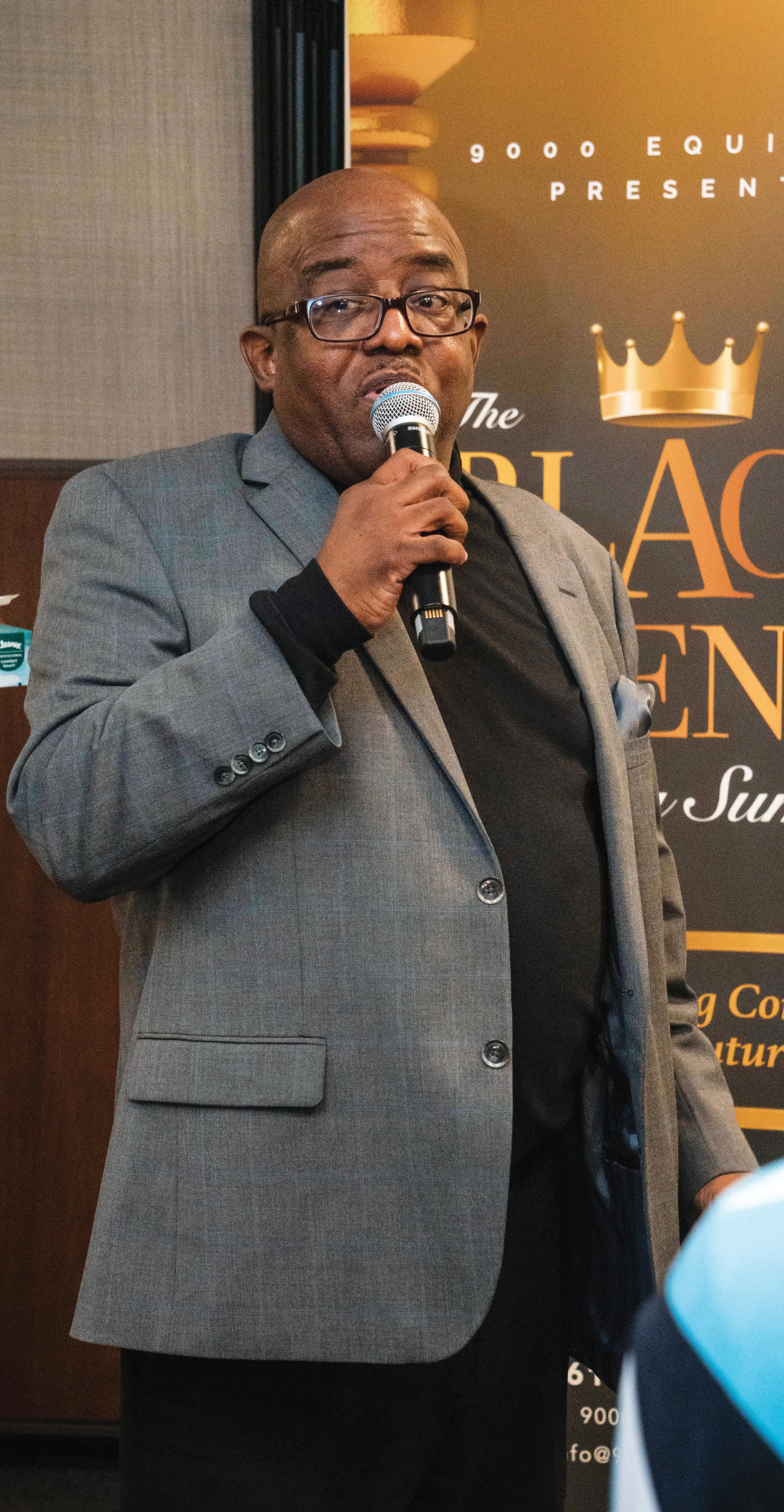
insightnews.com Insight News • March 25, 2024 - March 31 , 2024 March 2024 - March 31, 2024 • Page 1 tpphotostudio David McGee, CEO and founder of BuildWealth, MN David CEO and founder of BuildWealth, MN Vol. 51 No. 13• The Journal For Community News, Business & The Arts • insightnews.com Vol 51 No 13• The Journal For News Business & The Ar ts • insightnews com March 25, 2024 - March 31, 2024 March 2024 - March 31 , 2024 INSIGHT NEWS IS AUDITED BY THE ALLIANCE FOR AUDITED MEDIA TO PROVIDE OUR ADVERTISER PARTNERS WITH THE HIGHEST LEVEL OF MEDIA AS SURANCE. I N S I G H T N E W S I S A U D I T E D B Y T H E A L L I A N C E F O R A U D I T E D M E D I A T O P R O V I D E O U R A D V E R T I S E R P A R T N E R S W I T H T H E H I G H E S T L E V E L O F M E D I A A S S U R A N C E Insight News News S TORY ON PAGE STORY 3 EMPOWERING Transformation $2 million million gif t to gift to Build Wealth MN

Page 2 • March 25, 2024 - March 31 , 2024 March 2024 - March 31, 2024 • Insight News insightnews.com

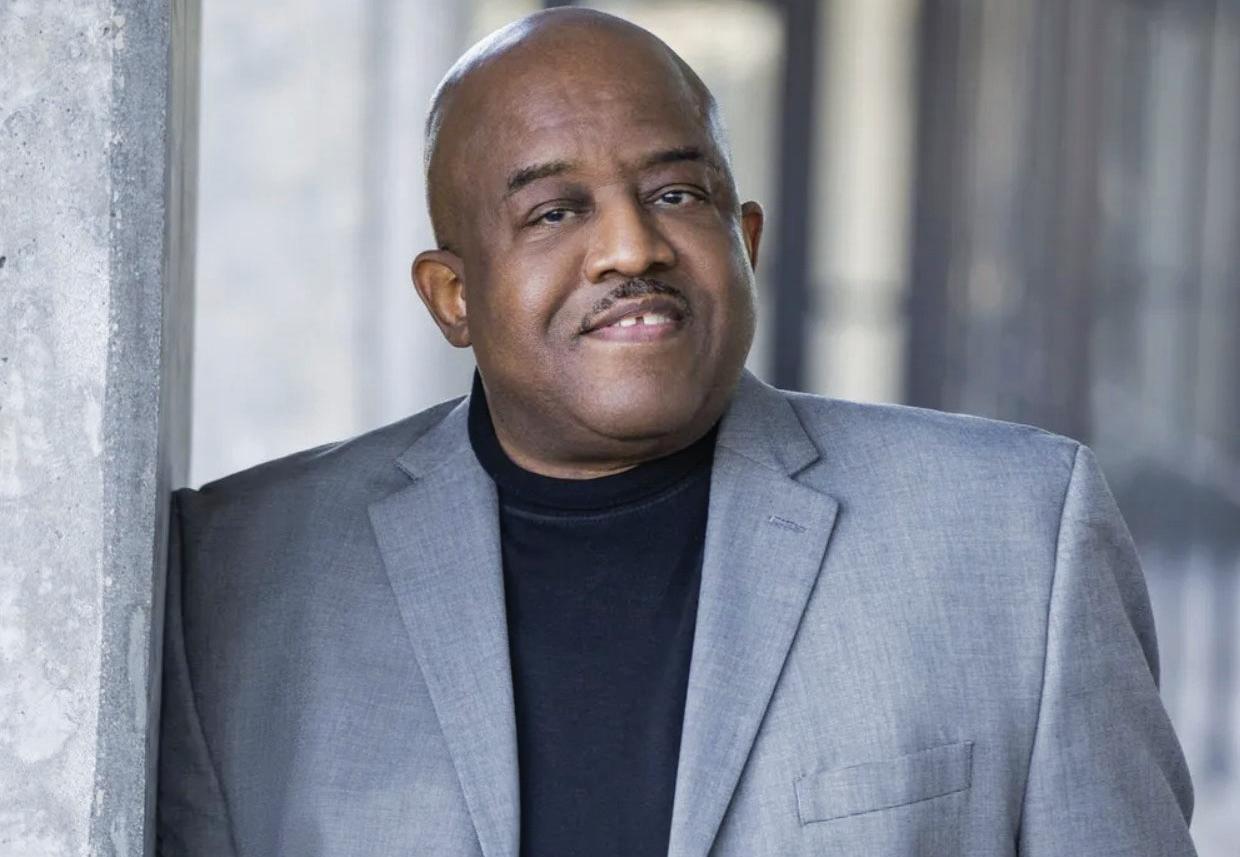
MacKenzie Scott’s Yield Giving last week announced Build Wealth MN as one of the Yield Giving Open Call’s awardees working with people and in places experiencing the greatest need in the United States.
Build Wealth Minnesota received $2 million.
Build Wealth MN is a 501(c)(3) nonprofit organization with twenty years of experience helping clients embrace new approaches for giving, saving, banking, investing, homeownership, and creating generational wealth. Build Wealth Minnesota educates, coaches, and provides access to financial services to empower families to build sustainable social and economic wealth.
In March 2023, Yield Giving launched an Open Call for community-led, communityfocused organizations whose explicit purpose is to enable individuals and families to achieve substantive improvement in their wellbeing through foundational
resources. “What a Blessing MacKenzie Scott has provided to Build Wealth. A gift of this magnitude is a game changer for our organization. This will help us to serve hundreds of families. We are forever grateful to MacKenzie Scott and the Yield Giving and Lever for Change teams.” David McGee Executive Director
The Open Call received 6,353 applications and initially planned for 250 awards of $1 million each. In the Fall of 2023, organizations top-rated by their peers advanced to a second round of review by an external Evaluation Panel recruited for experience relevant to this cause, and underwent a final round of due diligence. In light of the incredible work of these organizations, as judged by their peers and external panelists, the donor team decided to expand the awardee pool and the award amount.
“We are excited that our partnership with Yield
Giving has resonated with so many organizations,” said Cecilia Conrad, CEO of Lever for Change. “In a world teeming with potential and talent, the Open Call has given us an opportunity to identify, uplift, and empower transformative organizations that often remain unseen.”
More information on the Yield Giving Open Call and other initiatives can be found at www.leverforchange.org.
About Build Wealth MN Founded in 2004, Build Wealth MN, Inc. is a 501(c)(3) nonprofit organization with twenty years of experience helping people embrace new approaches to giving, saving, banking, investing, home ownership, and creating generational wealth. Build Wealth partners with local communities and businesses to provide underserved families with supportive financial programs and services to build social and economic wealth
Since its inception, BWM has served thousands of clients, helping people reach their goals of financial stability and supporting more than 7,000 families attain home ownership.
Programs include the Family Stabilization Plan, Youth Stabilization Plan, Rent Smart-Wise and Ready, PEEP: Pathways to increase Employment and Earnings Potential, Mortgage Loans and Down Payment Assistance, and Housing Development.
Most recently, Build Wealth announced its 9000 Equities initiative to close the Minnesota homeownership gap by helping 9000 Black families own a home. Visit www.bwealthe. org or www.9000equities.com for more information.
About Yield Giving Established
In a bid to chart the course for downtown Minneapolis’s future, Adam Duininck, the new head of the Minneapolis Downtown Council, engages in a dialogue with Insight News editor and radio host of The Conversation with Al McFarlane, Al McFarlane. Their conversation spans a spectrum of crucial topics, from safety and community inclusivity to transit systems and strategic planning, shedding light on the vision for a vibrant and inclusive downtown.
Creating a Safe and Inclusive Environment McFarlane kickstarts the discussion by addressing the pressing concern of safety
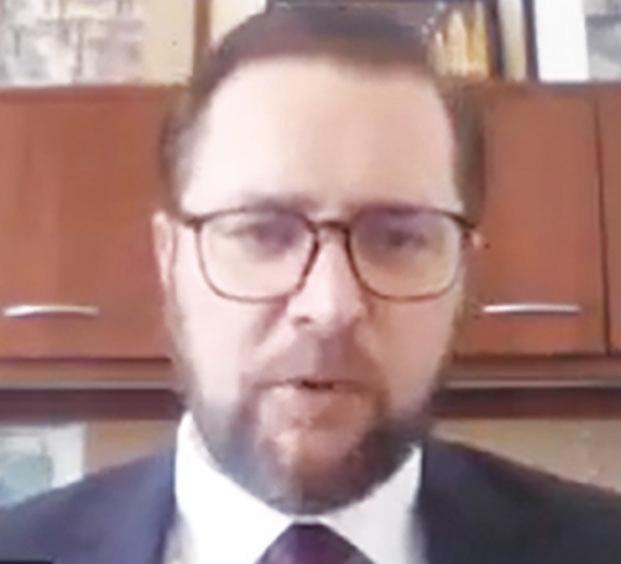
in downtown Minneapolis. Duininck underscores that safety isn’t merely about crime prevention but also about fostering inclusivity and community well-being. He stresses, “It’s not just about tackling crime; it’s about making everyone feel
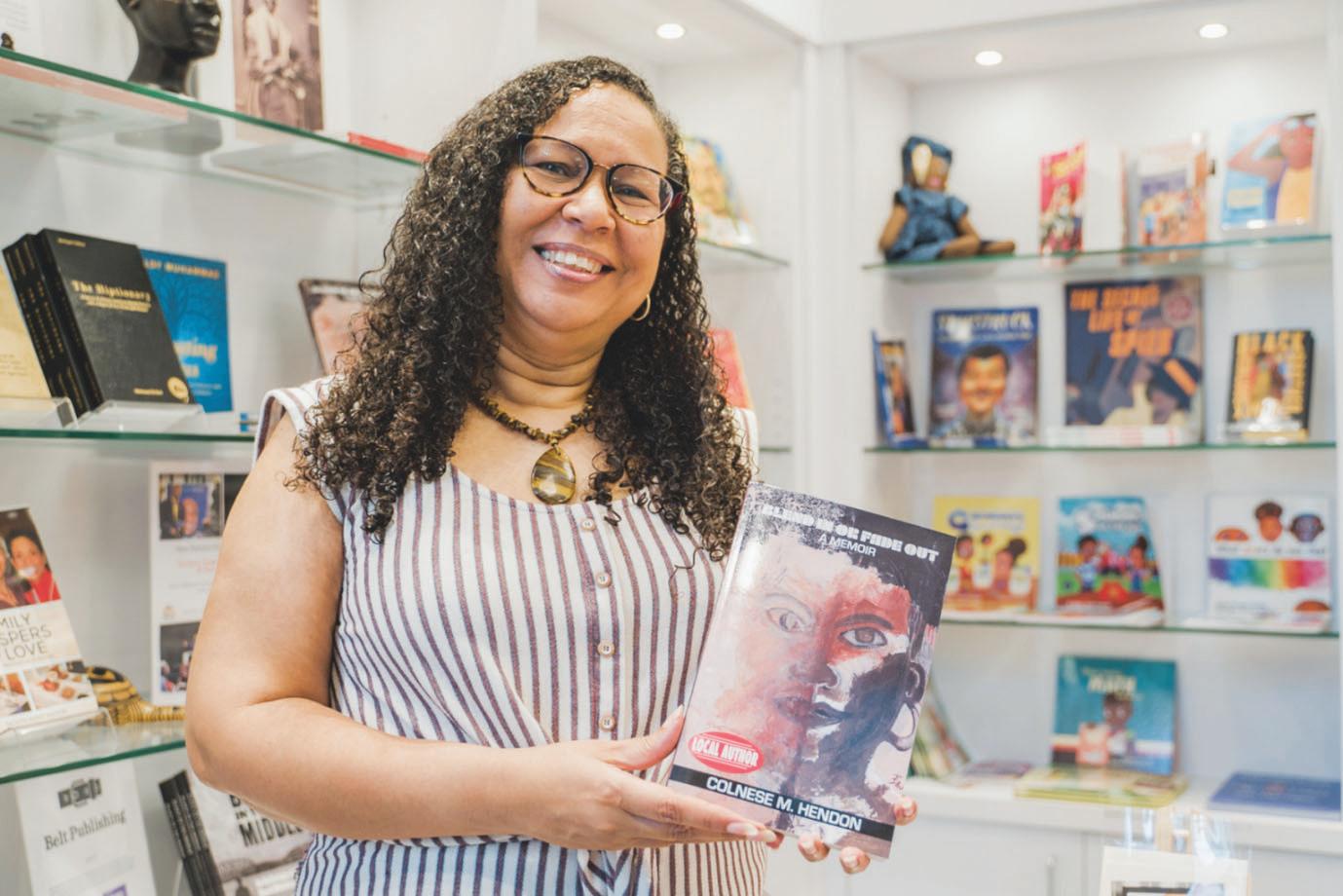
President Joe Biden argues that “democracy is on the ballot” in the 2024 election.
We believe there are potential threats to U.S. democracy posed by the choices voters make in this election. But the benefits of American democracy have for centuries been unequally available, and any discussion of the current threats needs to happen against that background.
One of us is a political scientist who focuses on civic engagement; the other is a former voting rights lawyer. At Tufts University’s Tisch College of Civic Life, we both lead nonpartisan efforts to educate college
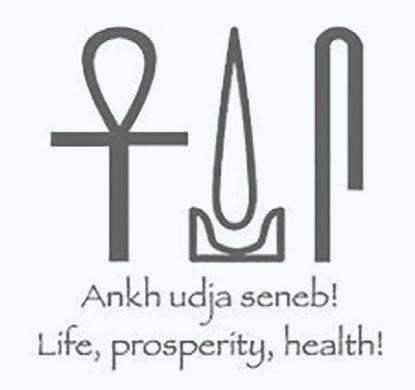

students and other people about their roles in democracy. For us, Biden’s talk of democracy is a useful starting point for a broader conversation about U.S. democracy and the 2024 election.
The ‘sacred cause’ On Jan. 5, 2024, the
president delivered a speech in Blue Bell, Pennsylvania, titled “Defending the Sacred Cause of American Democracy.” As a candidate for reelection at the early stages of a political campaign, the president argued that he and his fellow Democratic candidates are in favor of democracy. Former
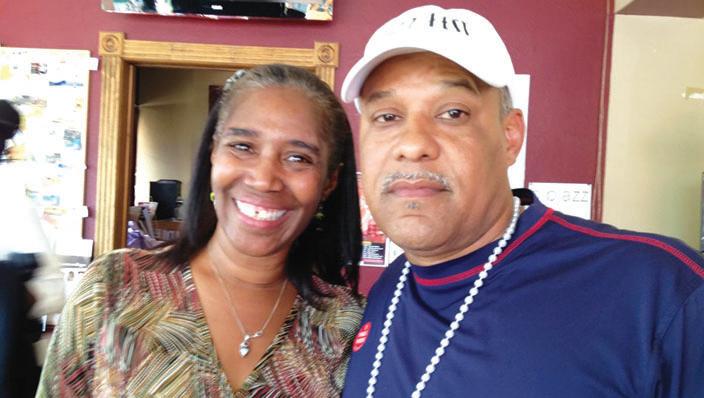
President Donald Trump and his supporters in the U.S. Congress, said Biden, are against it. In this speech and other statements, Biden makes the following case: Trump supported or even incited the Jan. 6, 2021, insurrection,
In the heart of Minneapolis, where the pulse of urban life beats steadily against the backdrop of towering skyscrapers, there exists a sanctuary of words—a haven where stories converge, cultures intersect, and voices long marginalized find resonance.
At its helm stands Mary Taris, a beacon of literary equity whose unwavering commitment to diversity and inclusion has
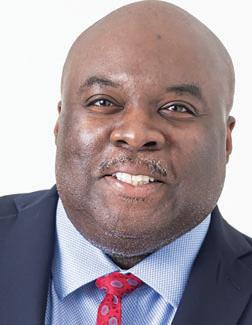
Now looky here, I did not say I was a millionaire, but I said I’ve spent more money than a millionaire; cause if I had kept all of the money I done already spent, I would have been a millionaire a long time ago...” Blues legend Howlin’ Wolf’s rendition of the classic,”Going Down Slow” Amid yesterday’s headlines, many of you may be wondering two questions:
1. What is an appeals bond?
2. Why has Donald Trump, a man who often boasts about being a billionaire, had such a difficult time

ignited a literary renaissance in the heart of Downtown. Born and bred in the vibrant tapestry of Minneapolis, Taris’s journey is a testament to the transformative power of education and the enduring legacy of community empowerment. A graduate of North High School, she embarked on a path paved with the dual responsibilities of motherhood and personal growth, navigating the intricacies of clerical work and imparting knowledge as a

securing a bond as he appeals the $464 million judgment in New York State Court? Per usual, I’m here to answer both questions in real time!
Last month, New York Judge Arthur Engoron ordered Mr. Trump and his co-defendants to pay a total of $464 million in damages after finding them liable for violating a New York antifraud statute. Judge Engoron
insightnews.com Insight News • March 25, 2024 - March 31 , 2024 March 2024 - March 31, 2024• Page 3 Insight News News Vol 51 No 13• The Journal For Community News, Business & The Arts • insightnews com Vol. 51 No. 13• The Journal For News, Business & The Arts • insightnews.com March 25, 2024 - March 31, 2024 March 2024 - March 31 , 2024 I N S I G H T N E W S I S A U D I T E D B Y T H E A L L I A N C E F O R A U D I T E D M E D I A T O P R O V I D E O U R A D V E R T I S E R P A R T N E R S W I T H T H E H I G H E S T L E V E L O F M E D I A A S S U R A N C E INSIGHT NEWS IS AUDITED BY THE ALLIANCE FOR AUDITED MEDIA TO PROVIDE OUR ADVERTISER PARTNERS WITH THE HIGHEST LEVEL OF MEDIA AS SURANCE.
by MacKenzie Scott to share a financial fortune created Build Wealth MN awarded $2 million gift from Yield Giving Open Call BWMN 4 US democracy’s unaddressed flaws undermine Biden’s stand as democracy’s defender but Trump keeps favoring political violence US DEMOCRACY 5 AI Capital City Village Bazaar Extravaganza, next venture for Mychael and Stephanie Wright PAGE 7 PAGE 9 I2H Monika Tawfik, PharmD – Clinical Pharmacist, Inpatient Hobb servation Point By Chuck Hobbs By Pulane Choane Contributing Writer iStock Democracy in the U.S. has historically not been available to all. Trump’s finances are “Going Down Slow...” TARIS 5 Empowering minds: Mary Taris’ Strive Publishing lights the way for literary diversity Drew Arrieta via Sahan Journal Mary Taris poses with “Blended In Or Faded Out” by Colonese M. Hendon at Strive Bookstore in Minneapolis on July 15, 2022. YouTube (@The Conversation with Al McFarlane) Adam Duininck, President and CEO of the Minneapolis Downtown Council. Donald Trump TRUMP 5 DUININCK 4 Re-imagining downtown on Conversations with Al McFarlane Exploring the path ahead for downtown Minneapolis: Adam Duininck interview BuildWealth David McGee, CEO and founder of BuildWealth, MN By Dayna Cunningham Pierre and Pamela Omidyar Dean, Jonathan M. Tisch College of Civic Life, Tufts University and Peter Levine Tisch College Associate Dean for Academic Affairs and Lincoln Filene Professor, Tufts University By Pulane Choane Contributing Writer
More Minnesotans are going underground — to warm and cool their homes and businesses. About 30 feet beneath your feet, the Earth’s crust has a relatively consistent temperature. So more people are installing geothermal heat pumps that can bring heat up from the Earth in winter or send hot air down into it in summer, heating water, as well.
There’s a federal tax credit available for purchases of such systems that currently covers 26% of a system’s cost.
A state rebate program could save consumers even more. Such is the focus of HF4689, which would establish a geothermal heat exchange system rebate program that could send as much as $6,000 to
homeowners or up to $50,000 to owners of multifamily housing or commercial buildings.
On Tuesday, the House Climate and Energy Finance and Policy Committee laid the bill over for possible inclusion in a larger climate and energy bill.
“It gives the ability to get some people over the hump,” said Rep. Amanda Hemmingsen-Jaeger (DFL-Woodbury), the bill sponsor. “They want to invest in geothermal. They might not have enough capital to quite get it done.”
Geothermal energy is a hot topic in the conversation about getting Minnesota to its goal of using exclusively carbon-free electricity by 2040. It’s also known for operating at lower costs than
which includes both capital restructuring, operational costs, and building improvements.
A
financial stability and housing constancy.
Sponsored by Michael Howard (DFLRichfield), HF4819, as amended, would authorize the Minnesota Housing Finance Agency to use bonds to assist affordable housing organizations whose buildings are in financial distress and where residents earn at or below 60% of the area median income.
Funds could be used for recapitalization,
Howard said the state has a vested interest in providing what are essentially long-term loans to nonprofit housing providers.
traditional heating, ventilation and air conditioning systems. Included in the bill are prevailing wage requirements for those installing such a system. An appropriation for the program has yet to be determined.
Representing the Geothermal Exchange Organization, Charles Sutton said most installation projects run between $22,000 and $45,000 for a single-family home before taking into account the federal tax credit.
Rep. Marion Rarick (R-Maple Lake) described that as “an incredibly expensive endeavor,” and Rep. Spencer Igo (R-Wabana Township) expressed concern the program would thus mostly serve high-income residents.
“I want to see that
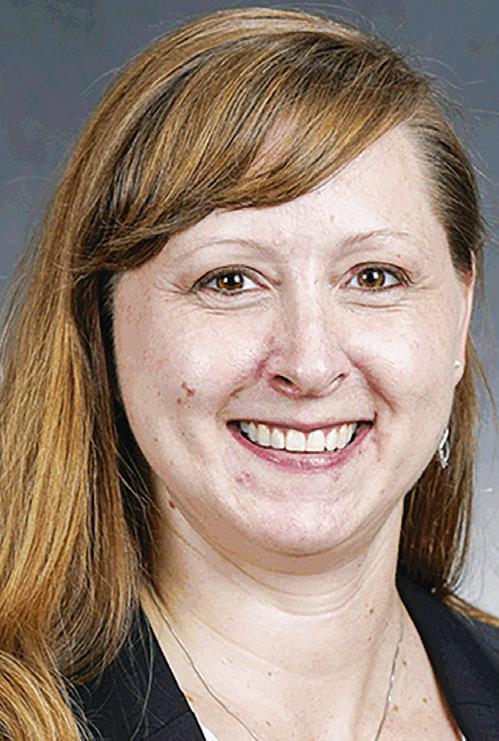
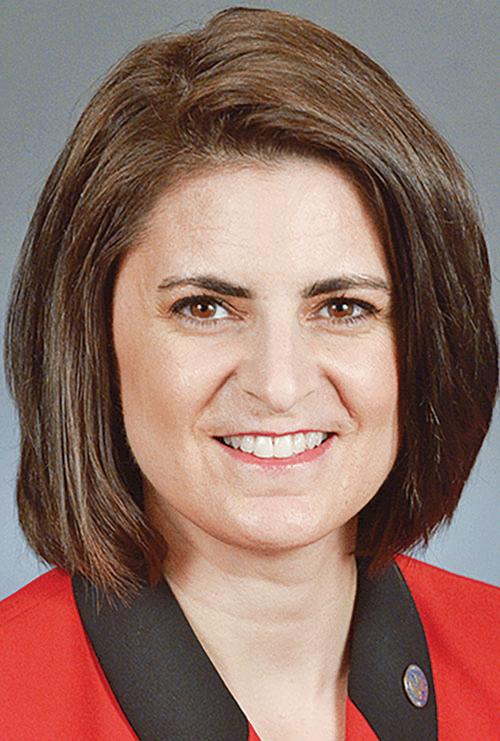
all Minnesotans will have the chance to go for this,” Igo said. “And that it doesn’t just turn into the top 5% of our state getting a handout.”
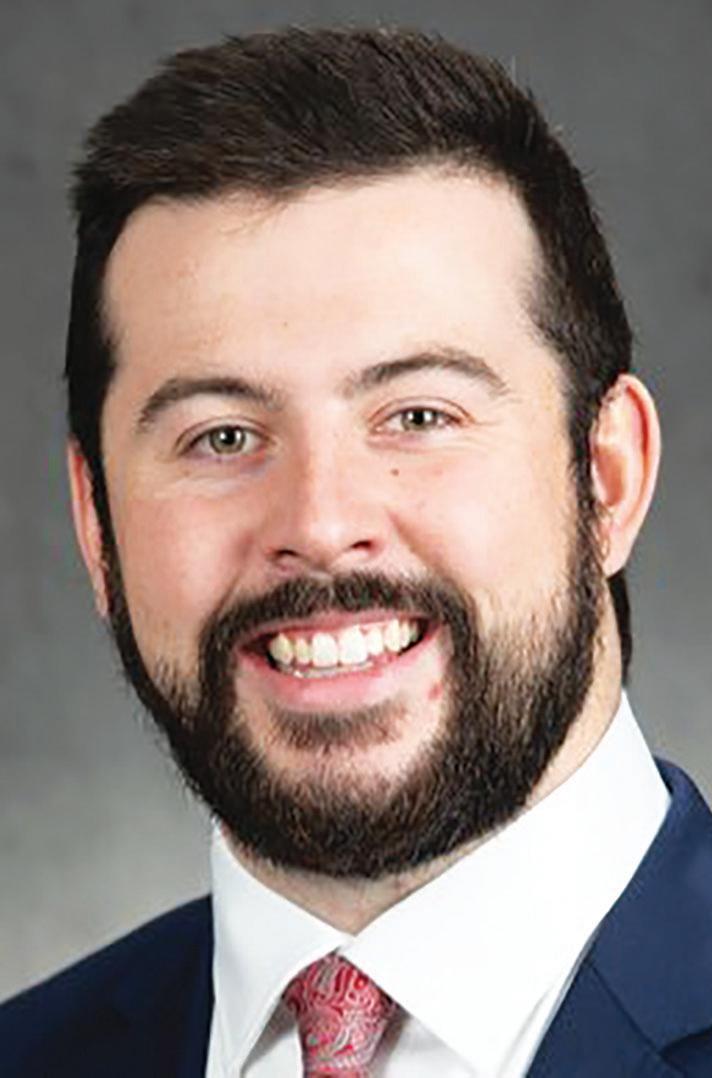
“I agree,”
Hemmingsen-Jaeger replied, saying that she sees the program as being particularly beneficial for multifamily housing.
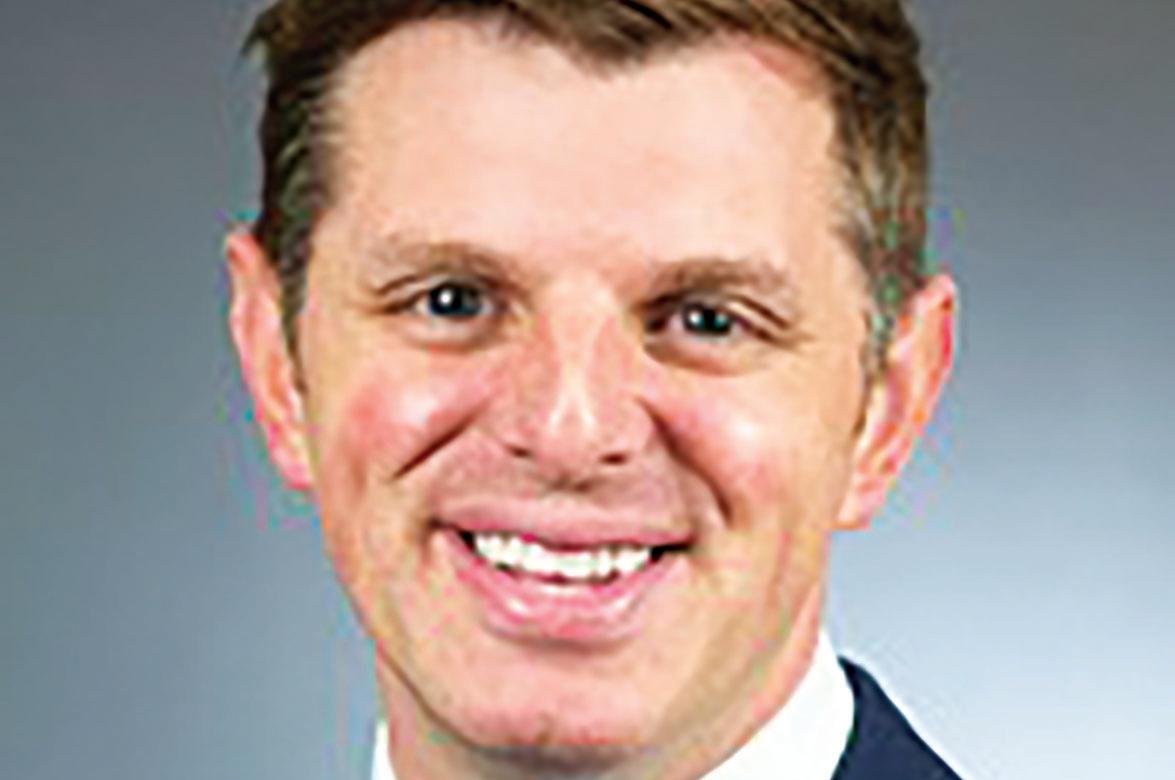
com.
through the effort of countless people, Yield Giving is named
after a belief in adding value by giving up control. To date, Yield’s network of staff and advisors has yielded over $16,500,000,000 to 1,900+ nonprofit teams to use as they see fit for the benefit of others. To learn more, visit www.yieldgiving.
welcomed and included.” This highlights the broader goal of ensuring that residents and visitors alike feel safe and embraced within the city.
Duininck also emphasizes the role of
About Lever for Change Lever for Change connects donors with bold solutions to the world’s biggest problems—including issues like racial inequity, gender
community engagement in enhancing downtown safety. He points to recent events like the Big 10 Women’s Tournament and major conventions as catalysts for revitalizing downtown, fostering a vibrant and secure environment. “It’s crucial for all city residents to feel safe and at home in their own environment,” Duininck asserts, underlining the significance of fostering a sense of belonging within the community.
Adapting to Urban Evolution Building on McFarlane’s inquiry about downtown’s long-term plan, Duininck delves into the intricacies of urban development. He highlights the challenge of integrating residential neighborhoods seamlessly into the downtown landscape amidst changing dynamics in commercial real estate. “How do residential areas in Downtown connect with each other and adapt to the evolving
inequality, lack of access to economic opportunity, and climate change. Using an inclusive, equitable model and due diligence process, Lever for Change creates customized challenges and other tailored funding opportunities. Top-
central business district?”
Duininck queries, emphasizing the need for growth alongside cohesion. Moreover, Duininck stresses the importance of diversity, equity, and inclusion within downtown. Drawing from his experience at the Metropolitan Council, he advocates for a culture of inclusion that transcends political boundaries. “How do we foster an inclusive culture where everyone feels invested in Downtown?” Duininck asks, signaling a commitment to creating spaces where diversity thrives and all voices are heard.
Revamping Transit Systems
Transitioning to transit systems, McFarlane probes Duininck about challenges facing downtown Minneapolis. Duininck acknowledges the pandemic’s impact on transit ridership and underscores the need to enhance safety and accessibility within the system. He highlights





ranked teams and challenge finalists become members of the Bold Solutions Network—a growing global network that helps secure additional funding, amplify members’ impact, and accelerate social change. Founded in 2019 as a
the role of community empowerment and emergency response in bolstering neighborhood safety, stressing, “Most issues can be addressed with better neighborhood support and activism.” This underscores the importance of a comprehensive approach to transit safety beyond law enforcement. Duininck also emphasizes the value of community-based policing and transit management. He lauds the efforts of ambassadors in creating welcoming and secure transit environments, citing their passion for downtown. “Ambassadors are invaluable assets...they’re deeply committed to Downtown,” Duininck affirms, highlighting the role of grassroots initiatives in building community trust within the transit ecosystem.
Nurturing Workplace Engagement
Shifting focus to workplace dynamics, McFarlane inquires about the return to in-person work and its impact on downtown vitality. Duininck shares insights into
“We could probably be more effective and efficient if we think on a network scale.”
of Shared Ownership at the Metropolitan Consortium of Community Developers. Hope Community, a not-for-pro
nonprofit affiliate of the John D. and Catherine T. MacArthur Foundation, Lever for Change has influenced over $1.7 billion in grants to date and provided support to more than 145 organizations. To learn more, visit www.leverforchange.org.
the gradual return of employees to downtown offices, citing initiatives by major employers to promote engagement. He stresses the importance of incentivizing in-person work through career development and interpersonal connections, stating, “Employees must see the benefits of being in the office.” This underscores the pivotal role of workplace culture in driving downtown vibrancy and economic resilience.
Furthermore, Duininck underscores the collaborative nature of strategic planning, emphasizing community engagement in shaping downtown’s future. He reflects on the inclusive approach adopted by the Downtown Council in soliciting input from diverse stakeholders, highlighting the collective vision driving downtown revitalization efforts.
In essence, the dialogue between Adam Duininck and Al McFarlane provides valuable insights into the multifaceted challenges and opportunities shaping
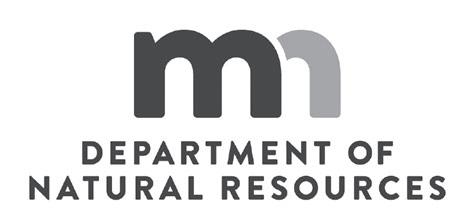
Page 4 • March 25, 2024 - March 31 , 2024 March 2024 - March 31, 2024• Insight News insightnews.com
Business
ffordable housing units are at risk of collapse or closure across the state.
House Housing Finance and Policy Committee approved a bill Tuesday that aims to create
The
If not for them, no one else would provide affordable housing, he said. “Their success is our success as a state.” The committee’s approval came on a split-voice vote. The bill will next be before the House Commerce Finance and Policy Committee. Bonds are the state’s most flexible tool because the biggest barrier to affordable housing is the lack of funding capital, said Electra Skrzydlewski, director
fit affordable housing organization, closed a 25-unit housing building last year due to ongoing security and safety concerns, said Maggy Otte, the community development projects manager. Ironically, the organization was ordered to demolish the building. The $200,000 cost matched the amount it would have cost to keep it open. The bill would also establish a task force to evaluate the state housing agency’s process of awarding and closing housing infrastructure bonds and low-income tax credits. Going geothermal? You could soon score a rebate By Rob Hubbard DUININCK 5 1 Rep. Amanda HemmingsenJaeger (DFL-Woodbury) BWMN From 3 Affordable housing units in financial distress would receive aid under House proposal Duininck From 3 Rep. Michael Howard 1 Rep. Marion Rarick (R-Maple Lake) 1 Rep. Spencer Igo (R-Wabana Township) By Miranda Bryant Insight News is published weekly, every Monday by McFarlane Media Interests. Editor-In-Chief Al McFarlane Publisher Batala-Ra McFarlane Associate Editor & Associate Publisher B.P. Ford Culture and Education Editor Dr. Irma McClaurin, PhD. Associate Editors Afrodescendientes Jesús Chucho Garcia Yoji Senna Columnist Brenda Lyle-Gray Book Review Editor W.D. Foster-Graham Sports Editor Leahjean M. Denley Content & Production Manager Sunny Thongthi Yang Distribution/Facilities Manager Charles Royston Receptionist Lue B. Lampley Intern Naomi Thomson Photography Uchechukwu Iroegbu Lou Michaels Roy Lewis - Washington D.C. Artist Donald Walker Contact Us: Insight News, Inc. Marcus Garvey House 1815 Bryant Ave. N. Minneapolis. 55411 Ph.: (612) 588-1313 Fax: (612) 588-2031 Member: Minnesota Multicultural Media Consortium (MMMC) Minnesota Newspaper Association (MNA) National Newspaper Publishers Association (NNPA) Postmaster: Send address changes to McFarlane Media Interests, Marcus Garvey House 1815 Bryant Avenue North, Minneapolis, INSIGHT NEWS www.insightnews.com M INNESOTA D EPARTMENT OF N ATURAL R ESOURCES Equal Opportunity Employer CONSERVATION OFFICER The Minnesota Department of Natural Resources is seeking conservation officer candidates. Conservation officers are fully licensed peace officers who protect Minnesota’s natural resources and the people who use them. Previous law enforcement experience isn’t necessary, but you do need at least a two-year degree, a self-starter attitude, and a desire to serve. The deadline to apply is March 31, 2024. An open house will be held March 6 at DNR Central Office (500 Lafayette Road, St. Paul, MN 55155) where interested individuals can speak with current officers. For more information, see mndnr. gov/enforcement/careers/index.html
Duininck
From 4 dedicated educator for over a decade.
Taris
From 3
Yet, it was in 2018 that Taris’s journey took a transformative turn—one that would redefine her purpose and reshape the literary landscape of her beloved city. With boundless determination and an unwavering vision, she founded Strive Publishing, a pioneering initiative dedicated
US Democracy US
to amplifying underrepresented voices and fostering cultural exchange through the written word. “I wanted to bridge cultures and help shape society through literature,” Taris reflects, her voice resonating with unwavering conviction. This mission culminated in the establishment of two bookstores in Downtown Minneapolis, each a sanctuary where diverse voices converge and narratives intertwine. “Our focus is on uplifting underrepresented voices,” Taris declares, her eyes gleaming with purpose. From
that provided justification for him to do the same.
Black authors to immigrant perspectives, from womenowned publishers to military families, Strive Bookstore transcends boundaries, fostering a vibrant tapestry of narratives that reflect the rich mosaic of human experience.
In a candid conversation with Al McFarlane, Taris expounds upon the transformative power of literature to reshape societal paradigms. “Reading is not merely a solitary pursuit; it is a communal act of discovery and enlightenment,” she asserts. Through Strive Bookstore’s curated selection and engaging
events, Taris endeavors to ignite a passion for reading among children and adults alike, bridging the gap in educational disparities and nurturing a lifelong love for learning. “We need to get books in their hands... It’s a tangible way to get children interested in books,” Taris emphasizes, underscoring the importance of literary engagement from a young age. Reflecting on her journey, Taris acknowledges the pivotal role of familial influence and mentorship in shaping her trajectory. “Children who see their parents reading will
inevitably follow suit,” she remarks, a testament to the enduring legacy of generational empowerment. Taris’s Strive Publishing stands as a testament to the resilience and creativity of Black entrepreneurship. As a Black woman-owned venture, Strive Bookstore embodies the spirit of empowerment and representation. Coming from Black History Month and now into International Women’s Month, the significance of Taris’s ownership of Strive cannot be overstated. It is a celebration of Black excellence and a recognition of the vital
role that Black women play in shaping our cultural landscape. As we venture into the hallowed halls of Strive Bookstore, guided by Taris’s steadfast vision, we are reminded of the transformative power of literature to transcend barriers, bridge divides, and ignite the flames of collective enlightenment. In Taris, we find not just a purveyor of books, but a visionary—a literary luminary whose indomitable spirit continues to shape the cultural fabric of Downtown Minneapolis and beyond.
and he refuses to denounce political violence. Trump floats ideas for his second presidential term that include invoking the Insurrection Act, which authorizes the president to deploy the military inside the United States.
In contrast, Biden and Vice President Kamala Harris argue that they respect the Constitution, recognize their limited power and limited importance as leaders within a constitutional order and support freedom of speech. They maintain, in Biden’s words, that “political violence is never, ever acceptable in the United States.”
The basic facts in Biden’s speech appear accurate:
Trump’s own statements support some of Biden’s claims.
If elected again, Trump is reportedly considering deploying the Insurrection Act against civilian protests. He has expressed open admiration for foreign authoritarian leaders, most recently Hungary’s Viktor Orban. He encouraged his supporters to “guard the vote” and to “watch those votes” in certain cities, which some interpret as threatening and potentially intimidating to election workers.
Trump has threatened to prosecute his political opponents, claiming in October 2023 that since he was being prosecuted during the Biden administration,
Trump
From 3
From 3 held
Further,
“do over” before a separate set of judges. Rather, the appellate process allows a higher court to review what transpired in the lower court case in the form of judicial rulings on pretrial motions, evidentiary objections and motion rulings during trial, and all post trial motions. In
“This is third-worldcountry stuff, ‘arrest your opponent,’” Trump said during a New Hampshire campaign visit. “And that means I can do that, too.”
Democracy vs. security
Biden’s own record, however, undermines some of his claims to be fully committed to democracy.
The Biden-Harris administration has been accused by human rights advocates and even Democratic senators of a double standard: championing democracy while maintaining close ties with authoritarian leaders, including the Saudis.
At the very least, Biden has continued a historic pattern of U.S. engagement across the globe that prioritizes security over human rights and liberal democracy. His administration is widely criticized for its support of Israeli Prime Minister Benjamin Netanyahu’s conduct of the war in Gaza and its disastrous humanitarian consequences.
At home, despite a major expansion of the government’s role in the economy, the Biden administration has not done anything significant to make federal policymaking more democratic or participatory.
Longer trends It’s helpful to step back from the daily campaign and its heightened rhetoric and consider how Biden’s assertion holds up in light of general research and evidence about democracy in the U.S. That
this role, the appellate courts are looking to determine whether the trial judge made errors in one or more of the aforementioned areas that run contrary to the prevailing law— and were fatal to the losing party’s case, which, again, is relatively rare.
Why is “Billionaire Donald” struggling to pay? While the former president’s lawyers were able to secure an appeals bond in the E. Jean Carroll defamation case which covers that $91.6 million dollar judgment, in its filings yesterday, the legal team stated that Mr. Trump has diligently sought to secure enough to cover the $464 million dollar judgment—but that 30 surety firms have declined to extend their services in this matter.
Now, perhaps you may be curious as to why Trump hasn’t just deposited the amount himself, being the rich billionaire that he boasts of being ALL of the time? The simple answer is that Trump isn’t flush with cash, as his alleged billionaire status is largely tied up in real estate holdings, like his Mar-A-Lago mansion in Palm Beach, Florida. It seems that in the wake of this latest adverse judgment, no surety firm has been willing to allow Trump to put up his holdings as the sole collateral, as the same prefer some mixture of liquid assets as well.
Such is why the Trump defense team is now left to beg the court to extend mercy by either lowering the judgment significantly (to $100 million), or allowing some other alternative (read creative) forms of sureties, such as signing over assorted property holdings to the court registry.
The irony is that Trump now finds himself at the appellate court’s mercy, this after routinely firing off nasty comments about the court system in general—opposing counsels and presiding judges specifically—only to be left at their judicial colleagues’ mercy as the March 25th “put up, or shut up” date rapidly approaches!
Now, while some legal pundits reasoned last month that Trump could quickly sell off assets to satisfy the judgment, his own lawyer, Alina Habba, dispelled this possibility in a court filing in which she wrote, “If (Trump’s)
analysis reveals a more complex picture of threats to democracy, some of which are specific to the upcoming election. Others have existed for some time.
In their 2020 book “Four Threats: The Recurring Crises of American Democracy,” political scientists Suzanne Mettler and Robert C. Lieberman argue that democracies in general suffer when any of four trends occur: intense partisan polarization, efforts to exclude some people from the electorate, economic inequality and unilateral exercises of power by the executive branch. Mettler and Lieberman show that each of these trends has been rising in the U.S. for several decades.
Applying their framework, we’d note that both Biden and Trump used a comparable number of executive orders –127 and 137, respectively – in their first three years to bypass a reluctant Congress and enact policies unilaterally. The Biden administration has been credibly accused of stretching executive power in areas such as student loan forgiveness.
These long-term trends mean that neither Trump nor Biden is mainly responsible for causing them. Biden criticized all four of these threats in his Jan. 5 speech, however, whereas Trump often endorses political polarization and limitless executive power and has challenged the validity of votes cast in urban and suburban areas with significant minority populations. This difference lends support to Biden’s argument.
forced to sell, there would be no way to recover any property sold following a successful appeal and no means to recover the resulting financial losses…”
Well, um, yeah, counselor—such are ALWAYS the stakes for any civil defendant, no matter how rich, allegedly rich, middle class, working class, or poor!
In the event that Trump does not get some type of delay or relief from this judgment, New York State Attorney General Letitia James’s next move will be to collect what’s owed through some mixture of garnishment actions and seizures of Trump owned properties so that the state could sell the same off at its will.
Still, before any Trumpian “everything must go” sale happens, there’s always the possibility that his Republican benefactors, including real billionaires like Elon Musk, may swoop in to keep the «USS Trumptanic” afloat; or, the former president, author of “The Art of the Deal,” could resort to the “art of the grift” by asking his millions of loyal followers to empty their pockets to help save his financial cause?
While the grift
game is always possible, the problem is that the Republican Party already is significantly trailing the Democratic Party on the finance trail this year, so much so that the NY Times and Washington Post have reported in recent weeks that Trump is sorely afraid that he will not catch up with President Biden financially in time to purchase enough ads to swing the tide in swing states that are
Violence as a threat to democracy
Notable in Biden’s campaign rhetoric about democracy is his alarm about political violence. In any democracy, violence is a threat because, among other things, it intimidates people and makes participation dangerous. In the U.S., political violence has always been associated with attempts to deny democratic rights. It is often racialized and targeted at the most vulnerable communities.
By its very nature, the system of slavery required extreme violence, political repression and the denial of democratic rights to enslaved black people. Though rarely recognized as such in history books, it could be characterized as a racially targeted police state coexisting within a liberal democracy for whites only. Governance under slavery included organized vigilante violence, repression of dissent, violent clashes and rebellions, harsh suppression, broad prosecution of dissidents, and systematic passage of restrictive laws or renewed enforcement of existing measures when resistance emerged.
Desmond S. King and Rogers M. Smith in “Still a House Divided” catalog some of these patterns. Even after slavery and the post-
Civil War period known as Reconstruction, political violence – frequently in response to Black political mobilization or the exercise of basic rights – helped maintain what was known as Jim Crow rule.
Two major instances among many stand out: the 1898 “Wilmington coup,” when white supremacists overthrew the democratically elected biracial city government, and the destruction of a city’s vibrant Black business district and community in the Tulsa Race Massacre of 1921.
Violence as a threat to democracy is by no means new, but the U.S. may be entering a new violent chapter.
While we do not have extensive historical data, the rate of political violence seems high now, and there are indications of dangerous trends. For example, in 2023, the U.S. Capitol Police investigated more than 8,000 threats against members of Congress, a substantial increase over 2022. The number of serious threats against federal judges has increased each year since 2019 and is 2.5 times higher now than five years ago.
Citing data collected by Nathan P. Kalmoe, Lilliana Mason and Bright Line Watch, democracy scholar Rachel Kleinfeldshows that the percentage of both Democrats and Republicans who believe that violence
is sometimes justified to achieve their political goals has more than doubled since 2017, although this remains a minority view in both parties.
From 2020 to 2023, the Armed Conflict Location & Event Data Projectcataloged 1,080 demonstrations in the United States that the organization labels violent – along with more than 50 times as many nonviolent demonstrations – plus 157 cases of excessive force against demonstrators and 22 armed clashes. This data establishes a baseline for tracking the phenomenon in the near future.
From our perspective, nonviolent protests are expressions of a vibrant democracy that deserve protection. There may be room to debate some of the protests labeled “violent.” However, the sheer number of demonstrations that the project labels violent – more than 1,000 in four years – is concerning to us. The Jan. 6, 2021, attack on the Capitol may prove to be an example of a period of political unrest. Trump is deeply implicated in the violence. Biden is decrying it – but not necessarily proposing any response other than to vote against Trump. This article is republished from The Conversation under a Creative Commons license.





insightnews.com Insight News • March 25, 2024 - March 31 , 2024 March 2024 - March 31, 2024• Page 5 downtown Minneapolis. From prioritizing safety and inclusivity to revitalizing transit systems and fostering workplace engagement, their exchange underscores the collaborative efforts needed to realize a vibrant, equitable, and resilient downtown for all. Through strategic planning and community-driven initiatives, downtown Minneapolis is poised to embrace its role as a dynamic urban hub that celebrates diversity, fosters innovation, and promotes shared prosperity. As the conversation concludes, readers are invited to delve deeper into the insights shared by visiting Insight News MN’s YouTube page, where the full video awaits.
that Trump, his sons Donald and Eric, and the Trump Organization fraudulently inflated the value of their assets to help boost their net worth to obtain benefits from lenders. Immediately following Judge Engoron’s judgment, Trump blasted the ruling, calling it an “unAmerican judgment against me, my family, and my tremendous business.” Trump vowed to appeal the ruling, per his rights under New York law, but to do so requires a significant financial burden that we now know the former president seems incapable of bearing.
is an Appeals Bond? In civil cases, whenever a losing party has a monetary judgment issued against it, should the loser elect to appeal that judgment, the courts require that some form of surety is issued so that the prevailing party can collect the funds it was awarded if the appellate courts ultimately uphold the final verdict. In some cases, if the losing party has the funds to cover the judgment, they can deposit the same into the clerk of court’s registry—where it will remain until a final judgment is issued by the higher courts. In cases with larger monetary verdicts, like the instant Trump case, the losing party can post a bond if they can secure one from a licensed lender.
the reason that such bonds are necessary is because the overwhelming majority of civil case verdicts are upheld in whole (or in part) on appeal. Following this logic, the likelihood that Trump et al will have this verdict totally overturned is slim—no matter what he says on the campaign trail.
What
Now,
contrary to popular (and Trump’s) belief, an appeal is not a
reelection
Subscribe to Hobbservation Point By Chuck Hobbs · Hundreds of paid subscribers “Real Politics in Real Time” Chuck Hobbs is a freelance journalist who won the 2010 Florida Bar Media Award and has been twice nominated for the Pulitzer Prize for Commentary.
crucial to his election prospects. That, coupled with his clear inability to self finance his
efforts, is making this late winter one of Trump’s financial discontent—even as he remains in a statistical dead heat with Mr. Biden. Stay tuned...
The DisproportionateImpact of LongCOVID on African Americans: Why Us Again? TheAfricanAmericanChildWellnessInstitute Cordially InvitesyoutoJoinus for our Weekly Podcast: Conversations with Al McFarlane Live: The HealingCircle Followed by the Monthly Virtual Long COVID19 Recovery Room Town Hall & Support Group FORMOREINFORMATIONCALLDR.B.GARRETT-AKINSANYAAT: 763-522-0100 CONVERSATIONSWITHALMCFARLANE(EveryFriday@1:00pm) https://www.youtube.com/@insightnewsmn/streams Join us & Share Your Thoughts During the Audience Town Hall in the ZOOM RECOVERY ROOM(4th Friday of every month @ 2:00 pm) https://us02web.zoom.us/j/86063423024?pwd=RWtPY3VRQUwxQmJYNzZxWGM2eS9tdz09 Meeting ID: 860 6342 3024 Passcode: 724195 This program is a collaborationsponsored by the African American Child Wellness Institute, McFarlane Media, Insight News, and funded by the Minnesota Department of Health.

Page 6 • March 25, 2024 - March 31 , 2024 March 2024 - March 31, 2024 • Insight News insightnews.com
Strip’ nominated for Image Award

Strip” marks a significant milestone, serving as the directorial debut of veteran comedian Chris Spencer, that expresses his richness of storytelling through the film’s predominantly Black cast. Featuring iconic talents such as Wesley
Snipes, Tiffany Haddish, J.B. Smoove, Gary Owen, Bill Bellamy, Spence Moore II, Raigan Harris, and Faizon Love, the movie resonated culturally with its audience.
The NAACP Image Awards recognition is more than an accolade for ‘Back on
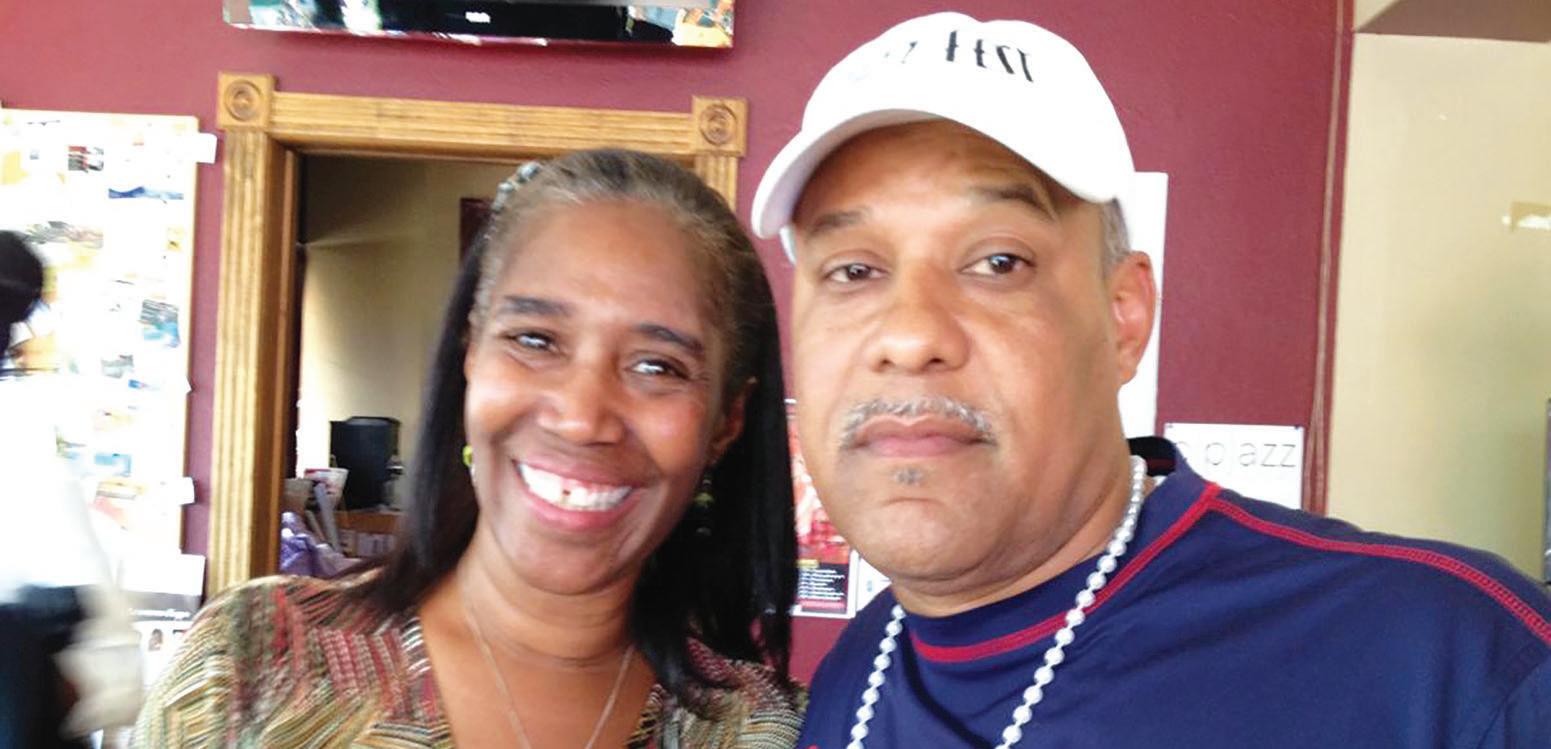
the Strip’, it also represents a pivotal moment for Parker and 5120 Entertainment’s vision of elevating independent entertainment to unparalleled heights. The NAACP Image Awards, considered the Black Academy Awards,
celebrates the incredible achievements of Black artists, producers, directors and storytellers who underscores the evolving dynamics of representation and diversity in the entertainment industry.
As 5120 Entertainment continues to
champion the mantra “Bring Your Dreams Here,” its impact on the live event space and beyond illustrates the boundless possibilities when dreams are nurtured and brought to fruition on grand stages like the NAACP Image Awards.
by a strong sense of community...we’re excited to bring JazzFest’s 22 years of community spirit to downtown St. Paul’s famed Union Depot.”
The first annual Capital City Village Bazaar Extravaganza will take place on Saturday, April 6 from 10:00 AM to 6:00 PM in St. Paul’s Union Depot. Wright added the event will feature a full day of great live music.
“We’re planning on presenting a number of JazzFest regulars including big bands Brio Brass and the Minnesota State Band, Walker West Music Academy students, a little NOLA spirit from the Selby Ave Brass Band, and a set from saxophonist extraordinaire Walter Chancellor. Great music along with the history and culture provided by the Union Depot is setting the stage for a great time.”
Wright recalls how the Capital City Village Bazaar Extravaganza came into being.
“JazzFest’s success is all about developing and maintaining strong partnerships, particularly with our vendors.
Many of these folks are small mom and pop businesses who every fall count on JazzFest to get them over the hump right before the holidays. Stephanie and I felt it was worthwhile to provide these valued partners with the same opportunity to cost effectively engage with customers in the spring.”
Booked for the Capital City Village Bazaar include:
Shrio’s African Boutique / Jewelry and Cultural Apparel
ComMusication / Focus on young voices of the community and cultivate opportunity though our youth with collaboration in music. Big Wonder / Childcare Koinonia / A Leadership Academy Elizabeth Mwangi / Artist African Jewelry
Kali Terry / Owner of Fresh and Natural Healthy Juices
Talaya Tolefree / Young Girls Empowerment and Leadership / Author of Children




insightnews.com Insight News • March 25, 2024 - March 31 , 2024 March 2024 - March 31, 2024• Page 7
on
South Bay Black Journal
5120 Entertainment Eugene Parker, CEO, 5120 Entertainment Former owners of Golden Thyme Coffee Café and founders of the Selby Ave JazzFest Mychael and Stephanie Wright recently announced their next community-development project. “Stephanie and I will be hosting the first annual Capital City Village Bazaar Extravaganza,” said Mychael. “Music, art, food all surrounded
the
By Kenneth Miller,
Courtesy/
Books Kid’s Corner / Face, Painting by Summit University Member Victoria Theater / Hosting Art for Kids Comics and Games / Hosted by Broken Robots owners: Mizz. Mercedez and Mack Phillips Element Gym / Dalton Outlaw principle Food Vendors: Logans Catfish and Mini Donuts / Robert Logan Owner Egg Roll Queen: Huge Egg Rolls and Asian Cuisine Taste the Real Nawlins: Culturally Specific New Oelean’s Crescent City Style Food. Christian Jefferson / Owner West Indies Soul / Caribbean Flare Style Food / Sharon Noel / Owner Doggy Dog World / Hot Dogs and Fair Foods / Other featured guests include: Congresswoman Betty McCallum and YWCA Executive Director, Ashley Booker. Also on hand will be representatives of: MnDOT, Twin Cities Rise, and Minnesota Housing Authority. The event is free and open to the public. Limited vendor space is still available. For more information visit capitalcityvillagebazaar. com. Capital City Village Bazaar Extravaganza, next venture for Mychael and Stephanie Wright JazzFest Stephanie Wright and Mychael Wright PARTTIME DISTRIBUTION ROUTEDRIVER Onetotwodaysperweek. $15perhour. Validdriver'slicenserequired. Calltoapply 612-695-0417 WEARE HIRING

Page 8 • March 25, 2024 - March 31 , 2024 March 2024 - March 31, 2024 • Insight News insightnews.com
How much stress is too much? A psychiatrist explains the links between toxic stress and poor health − and how to get help
By Lawson R. Wulsin

symptoms such as headache, fatigue or abdominal pain that interfere with overall functioning. After months of initial symptoms, a fullblown illness with a life of its own – such as migraine headaches, asthma, diabetes or ulcerative colitis – may surface.
When we are healthy, our stress response systems are like an orchestra of organs that miraculously tune themselves and play in unison without our conscious effort – a process called self-regulation. But when we are sick, some parts of this orchestra struggle to regulate themselves, which causes a cascade of stressrelated dysregulation that contributes to other conditions.
In fact, the rhythm of these daily challenges, including feeding yourself, cleaning up messes, communicating with one another and carrying out your job, helps to regulate your stress response system and keep you fit.
Toxic stress, on the other hand, wears down your stress response system in ways that have lasting effects, as psychiatrist and trauma expert Bessel van der Kolk explains in his bestselling book “The Body Keeps the Score.”
The earliest effects of toxic stress are often persistent
For instance, in the case of diabetes, the hormonal system struggles to regulate sugar. With obesity, the metabolic system has a difficult time regulating energy intake and consumption. With depression, the central nervous system develops an imbalance in its circuits and neurotransmitters that makes it difficult to regulate mood, thoughts and behaviors.
‘Treating’ stress Though stress neuroscience in recent years has given researchers like

me new ways to measure and understand stress, you may have noticed that in your doctor’s office, the management of stress isn’t typically part of your treatment plan.
Most doctors don’t assess the contribution of stress to a patient’s common chronic diseases such as diabetes, heart disease and obesity, partly because stress is complicated to measure and partly because it is difficult to treat. In general, doctors don’t treat what they can’t measure.
Stress neuroscience and epidemiology have also taught researchers recently that the chances of developing serious mental and physical illnesses in midlife rise dramatically when people are exposed to trauma or adverse events, especially during vulnerable periods such as childhood.
Over the past 40 years in the U.S., the
alarming rise in rates of diabetes, obesity, depression, PTSD, suicide and addictions points to one contributing factor that these different illnesses share: toxic stress. Toxic stress increases the risk for the onset, progression, complications or early death from these illnesses.
Suffering from toxic stress Because the definition of toxic stress varies from one person to another, it’s hard to know how many people struggle with it. One starting point is the fact that about 16% of adults report having been exposed to four or more adverse events in childhood. This is the threshold for higher risk for illnesses in adulthood. Research dating back to before the COVID-19 pandemic also shows that about 19% of adults in the U.S. have four or more chronic illnesses.
If you have even one chronic illness, you can imagine
how stressful four must be.
And about 12% of the U.S. population lives in poverty, the epitome of a life in which demands exceed resources every day. For instance, if a person doesn’t know how they will get to work each day, or doesn’t have a way to fix a leaking water pipe or resolve a conflict with their partner, their stress response system can never rest. One or any combination of threats may keep them on high alert or shut them down in a way that prevents them from trying to cope at all.
Add to these overlapping groups all those who struggle with harassing relationships, homelessness, captivity, severe loneliness, living in high-crime neighborhoods or working in or around noise or air pollution. It seems conservative to estimate that about 20% of people in the U.S. live with the effects of toxic stress.
Recognizing and managing stress and its associated conditions
The first step to managing stress is to recognize it and talk to your primary care clinician about it. The clinician may do an assessment involving a self-reported measure of stress.
The next step is treatment. Research shows that it is possible to retrain a dysregulated stress response system. This approach, called “lifestyle medicine,” focuses on improving health outcomes through changing high-risk health behaviors and adopting daily habits that help the stress response system self-regulate.
Adopting these lifestyle changes is not quick or easy, but it works.
The National Diabetes Prevention Program, the Ornish “UnDo” heart disease program and the U.S. Department of Veterans Affairs PTSD program, for example, all achieve a slowing or reversal of stress-related chronic conditions through weekly support groups and guided daily practice over six to nine months. These programs help teach people how to practice personal regimens of stress management, diet and exercise in ways that build and sustain their new habits.
There is now strong evidence that it is possible to treat toxic stress in ways that improve health outcomes for people with stress-related conditions. The next steps include finding ways to expand the recognition of toxic stress and, for those affected, to expand access to these new and effective approaches to treatment.
Lawson R. Wulsin received funding in 2010 from the Veterans Administration support a secondary analysis of data from the Framingham Heart Study, which was published and contributed in part to the substance of this article.
This article is republished from The Conversation under a Creative Commons license.
“As pharmacists, it can be easy to take all the medication knowledge that we have for granted. Fitting medication into their lives is not so easy for patients who have complex social and psychological

insightnews.com Insight News • March 25, 2024 - March 31 , 2024 March 2024 - March 31, 2024 • Page 9
COVID-19 taught most people that the line between tolerable and toxic stress – defined as persistent demands that lead to disease – varies widely. But some people will age faster and die younger from toxic stressors than others. So how much stress is too much, and what can you do about it? I’m a psychiatrist specializing in psychosomatic medicine, which is the study and treatment of people who have physical and mental illnesses. My research is focused on people who have psychological conditions and medical illnesses as well as those whose stress exacerbates their health issues. I’ve spent my career studying mind-body questions and training physicians to treat mental illness in primary care settings. My forthcoming book is titled “Toxic Stress: How Stress is Killing Us and What We Can Do About It.” A 2023 study of stress and aging over the life span – one of the first studies to confirm this piece of common wisdom – found that four measures of stress all speed up the pace of biological aging in midlife. It also found that persistent high stress ages people in a comparable way to the effects of smoking and low socioeconomic status, two well-established risk factors for accelerated aging. The difference between good stress and the toxic kind Good stress – a demand or challenge you readily cope with – is good for your health.
Insight 2 Health
barriers. In every patient interaction I have, I work to understand how we can give them the tools to take their health into their own hands and feel empowered. That’s what will make them successful. We can’t be there to remind patients to take their medication, but if we can build a relationship and understand them, we can change the trajectory of their health. Those are the moments that are rewarding, especially as patients transition from inpatient to outpatient because it can be so overwhelming for them. We help them and their caretakers to feel reassured when they leave that they can manage their own care and improve the quality of their lives.” Hennepin Healthcare professional profile Monika Tawfik, PharmD –Clinical Pharmacist, Inpatient
Professor
Psychiatry and Family Medicine, University
Cincinnati Monika Tawfik iStockphoto Toxic stress increases the risks for obesity, diabetes, depression and other illnesses. health.mn.gov Get vaccinated if eligible. Get your booster shot when due. Stay home if you feel sick or have been close to someone with COVID-19. Wear a mask when recommended or required. Get tested for COVID-19 if you feel sick, were touching shared objects. Keep this a safe space for our children Take steps to help protect our children, staff, and communities from getting sick with COVID-19. Minnesota Department of Health | health.mn.gov | 625 Robert Street North PO Box 64975, St. Paul, MN 55164-0975 | 651-201-5000 Contact health.communications@state.mn.us to request an alternate format. 03/03/2022
of
of
Is a cultural shift on the horizon?
By Maya Mackey | Inglewood Today
Almost two weeks removed from Black History Month, I find myself pondering what Black Culture is, in modern times. There’s a running joke on X/Twitter that “we are losing recipes!” whenever young Black people (Gen Z) don’t know a Black classic, like a movie, song or “rule.”
And while we mean no harm in teasing our younger kinfolk (cause you know, we’re all cousins), it does beg the question: Why are we losing recipes? And what recipes do we even want to keep?
As with all traditions in all cultures, it is up to the elders to pass down the rituals, food, language, and customs that identify a group. So, if your auntie, uncle, mom, and so on didn’t teach you how to play Spades, well, that’s a recipe lost. But outside of Spades, Uno and Dominoes, Cookouts, Collective Dancing, and asking who made the Mac’ n’ Cheese, what is bonding us in the present?
Every time I learn something about Black American history, the lessertold stories about pioneers of The Civil Rights Movement, I get choked up. The resilience of our people is astounding. The bravery and courage our ancestors had to muster in the face of unadulterated hatred is unmatched. But one thing

about us is that we never lose our joy As racism against African Americans soared in the 50s and 60s, alongside it, a cultural movement of pride aimed to juxtapose it. “Black is beautiful” was a slogan, a campaign, and a mission in the 1960s and 1970s. Black people began to embrace, or rather, re-embrace their natural hair–sporting afros, braids, or other nonchemically treated styles. Some even learned Swahili to connect to Africa. James Brown upped the ante with his iconic song, “Say It Loud – I’m Black and I’m Proud.” The 70s brought us Soul Train, a cultural mosaic of music, fashion, and the hottest dance moves to
TV screens across America. The 80s launched B.E.T., the first solo Blackcentered channel of relevance today. Martin Luther King Jr day was established as a national holiday and Michael Jackson became a solo sensation. Oprah became an overnight sensation! The 80s gave way to Black entertainers in particular, breaking color barriers and fighting to be “legitimized” by mainstream media.
When the 90s and 2000s came around, Blackness was at the height of popularity (at least on TV). The plethora of sitcoms featuring storylines of Black families and friends has never been as robust as it was during this era. From “Martin”
to “The Fresh Prince of BelAir” and “Living Single.” followed “Girlfriends,” “The Parkers” and “One on One,” Black people got to see themselves reflected on screen in diverse ways. Air Jordans became synonymous with Black Urban culture.
Terms like “Ghetto Fabulous” were coined due to the styles of Mary J. Blige and Destiny’s Child. Then the cultural pendulum swung back and Black people were sorely missing from programming in the first half of the 2010s. Even today, the height of Black television has not been reached since its demise around 2005.
In a post-pandemic world, where our communities
have once again fallen victim to recessions, and larger family get togethers aren’t as frequent, I wonder where the pendulum of Black American culture will swing next. Cord Jefferson, the Oscar-winning screenwriter of 2023’s American Fiction, gave rousing speeches both when he accepted his Academy Award and when he was later interviewed off-stage. He urged Hollywood to financially back more diverse, lower-budget films. It was a reasonable and much-needed ask. Yet, Black Twitter was divided today on whether Jefferson was perpetuating a culture war against “Hood Blacks” and “Suburban Blacks.”
The problem with that line of thinking and false accusation is that a.) There is a third subset of Black folk who are neither from the hood or the suburbs and b.) There are indeed Black people from the hood that have non-stereotypical interests such as anime, a love for EDM music and a passion for nature and hiking.
I was frankly annoyed that such an unproblematic request by Jefferson became obtusely misunderstood by so many people. Cast aside Cord Jefferson and the Oscars, there has still been much discourse about the normalizing of abnormal things in our community. And while we know that a racist system is to blame for a lot of the Black American plight, free will is always on the menu. If the 60s cultural movement was about uncovering our natural beauty, the 70s and 80s were relentlessly joyful, and the 90s and 2000s were about flexing our economic come up, what will the next big be to signify Black people moving forward?
As it becomes more normal to have Black people in power and more of us are living in and creating multicultural families, what of Black American life will prevail? What do we keep? What do we innovate next? I hope it’s one of living well, no matter what hood you come from.
Bob Amsterdam: Defender of religious freedom in Ukraine and globally
By Pulane Choane Contributing Writer
In the tumultuous landscape of Eastern Europe, where history intertwines with the present, a new chapter unfolds in the saga of human rights and justice. At its center stands Robert “Bob” Amsterdam, a seasoned legal luminary, whose tireless efforts echo the cries of the oppressed and challenge the shackles of tyranny. With a career spanning four decades, Amsterdam’s reputation as an international lawyer is unparalleled. Amsterdam’s client roster reads like a who’s who of global power players, spanning from sovereign governments to multinational corporations.
Yet, beyond the courtroom, Amsterdam’s commitment to huma n rights shines brightly through his award-winning pro bono work as his firm is “well-known for its pro bono practice in human rights,” citing cases such as the defense of exiled Russian State
Duma deputy, Ilya Ponomarov, Cameroon Resistance Movement leader, Maurice Kamto and Ugandan Member of Parliament and opposition leader, Robert Kyagulanyi Ssentamu who is widely known as a pop musician under the alias Bobi Wine, to name a few. This dedication to defending the rights of the marginalized and oppressed underscores his unwavering belief in the principles of justice and equality.
Yet, it is his latest endeavor that thrusts him into the spotlight: defending the Ukrainian Orthodox Church against the onslaught of political persecution. Amsterdam’s fearless advocacy often places him at odds with oppressive regimes and authoritarian leaders, a fact he candidly acknowledges when stating, “I’m banned from seven countries, including many in Africa, for representing opposition leaders.” Despite facing personal risks and professional challenges, Amsterdam remains resolute in his pursuit of justice for those
who have been marginalized and oppressed by oppressive regimes.
Recent events in Ukraine have once again thrust Amsterdam into the limelight, as he endeavors to defend the Ukrainian Orthodox Church against government persecution. His firsthand accounts of intimidation tactics employed by the Ukrainian government shed light on the precarious state of religious freedom and civil liberties in the country. His description of a senior Metropolitan being intimidated to the point of a cardiac infraction underscores the severity of the situation and the lengths to which oppressive regimes will go to suppress dissent.
Amsterdam’s concerns transcend borders, as he offers a critical examination of Western powers’ foreign policy, particularly their approach to sanctions and geopolitical tensions. His views on the efficacy of sanctions challenge conventional wisdom, as he asserts, “We are opposed to sanctions, and we think
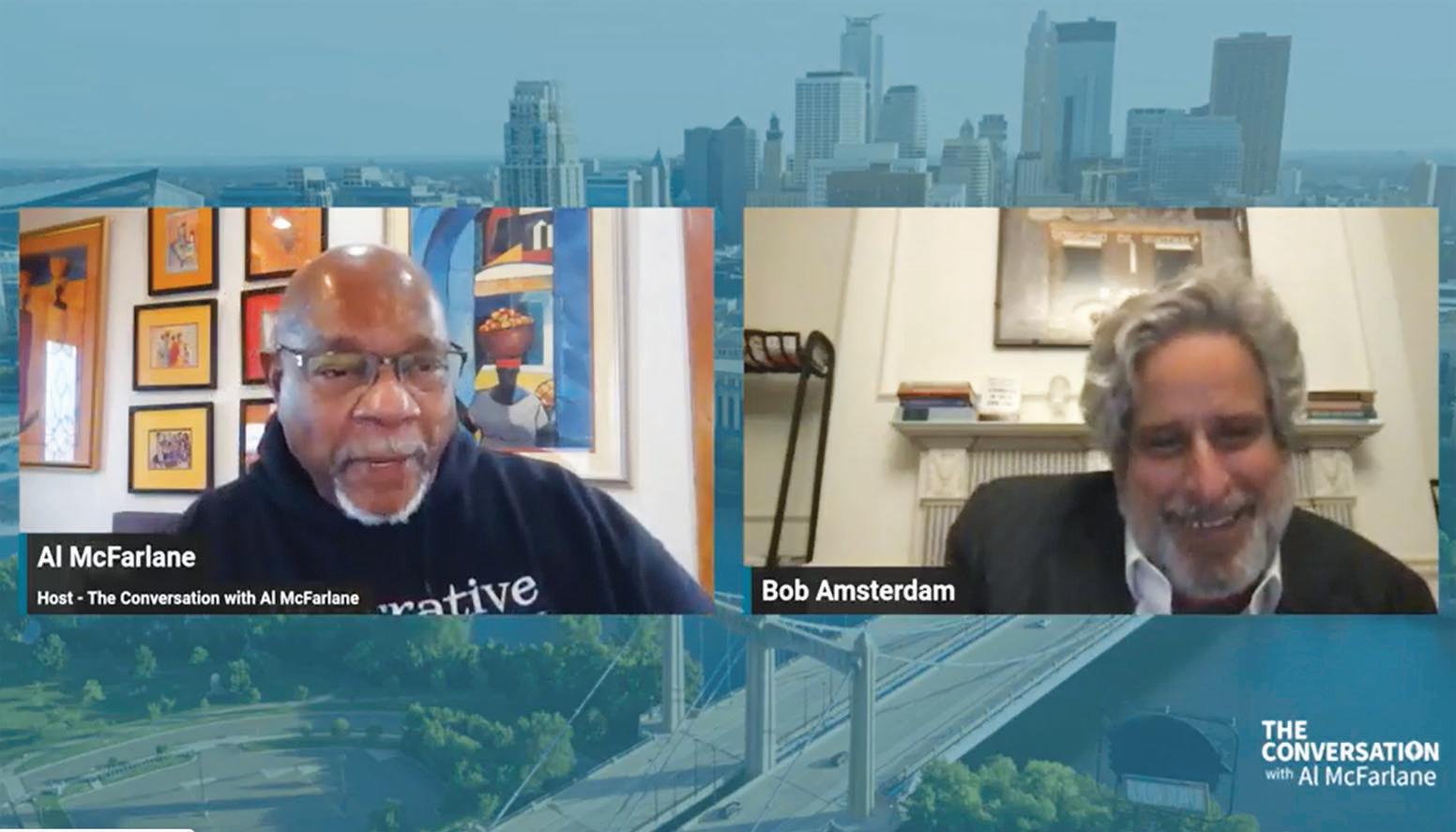
that from a US standpoint, sanctioning Venezuela when you’re going after Russia is a crazy thing to do.” While acknowledging the need to address Russia’s actions in Ukraine, he questions the wisdom of imposing sanctions on countries like Venezuela while simultaneously targeting Russia. Amsterdam’s argument underscores the
interconnectedness of global politics and the unintended consequences of unilateral actions, urging a more nuanced and strategic approach to sanctions policy. This nuanced perspective offers a refreshing counterpoint to mainstream discourse, inviting readers to reconsider their assumptions about the utility and morality of sanctions as a diplomatic tool.
As the conversation with Al McFarlane draws to a close, one thing becomes abundantly clear: Bob Amsterdam’s voice will continue to reverberate in the halls of power and the corridors of justice, a testament to his unwavering commitment to justice, human rights, and the pursuit of a more equitable world order.
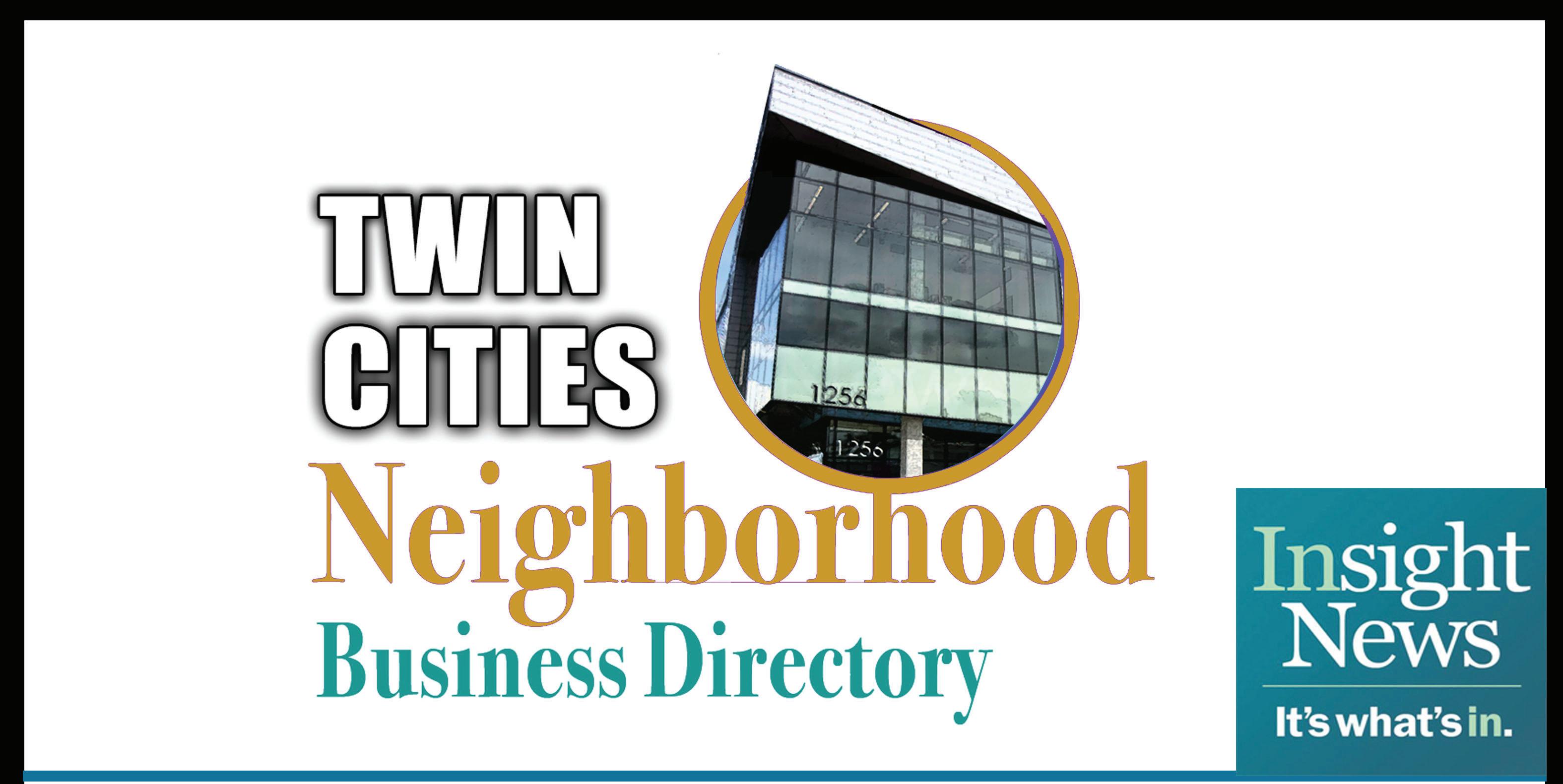

insightnews.com Insight News • March 25, 2024 - March 31 , 2024 March 2024 - March 31, 2024 • Page 11
The Conversation with Al McFarlane International lawyer at Amsterdam & Partners LLP, Bob Amsterdam, on Al McFarlane’s platform The Conversation with Al McFarlane.
iStockphoto / NNPA

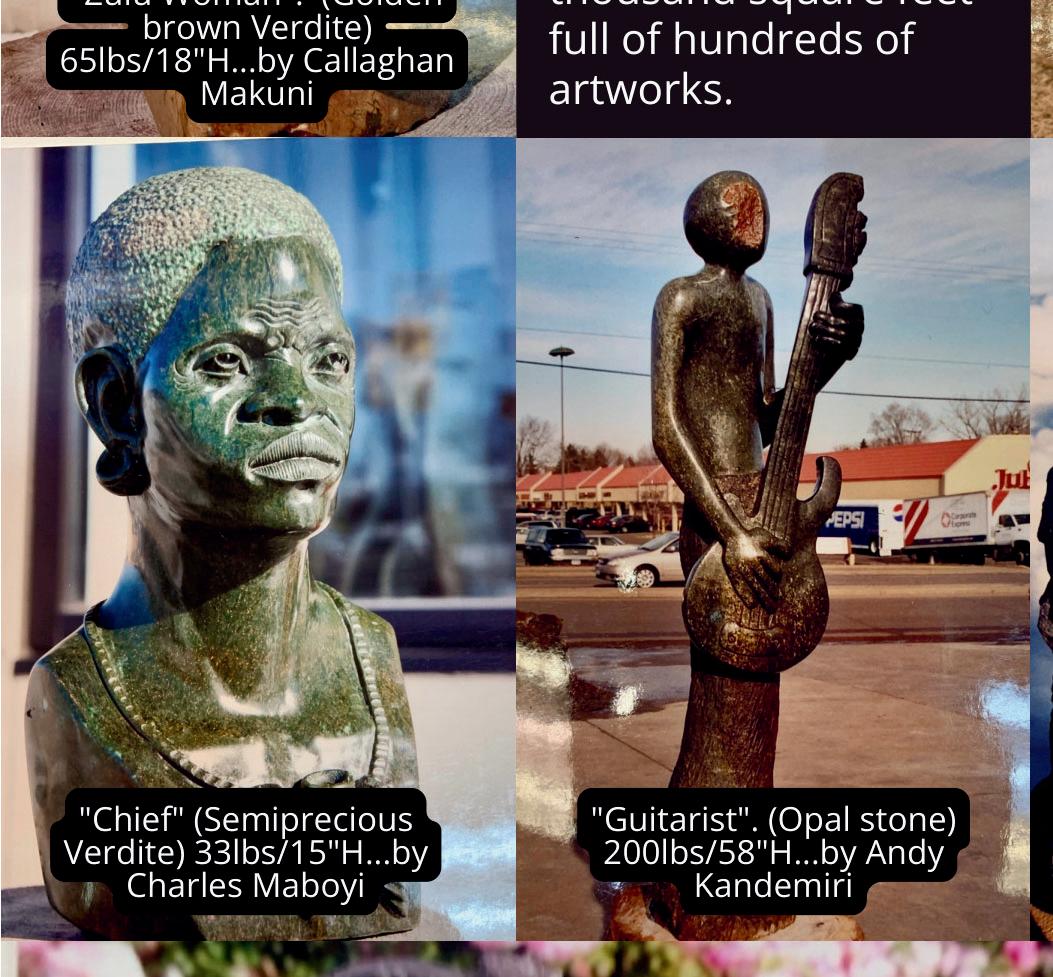




Page 12 • March 25, 2024 - March 31 , 2024 March 25, 2024 - March 31, 2024• Insight News insightnews.com








































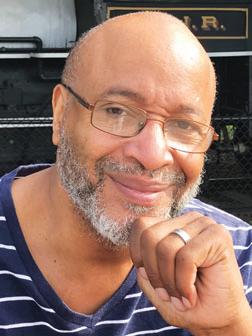 By: W.D. Foster-Graham Book Review Editor
By: W.D. Foster-Graham Book Review Editor



